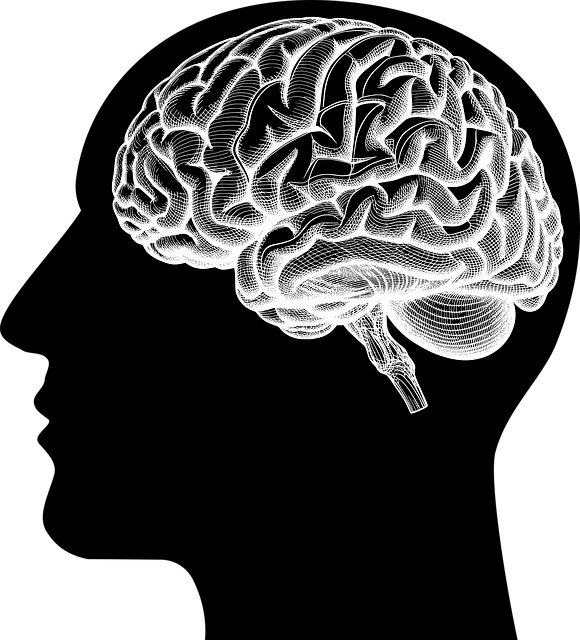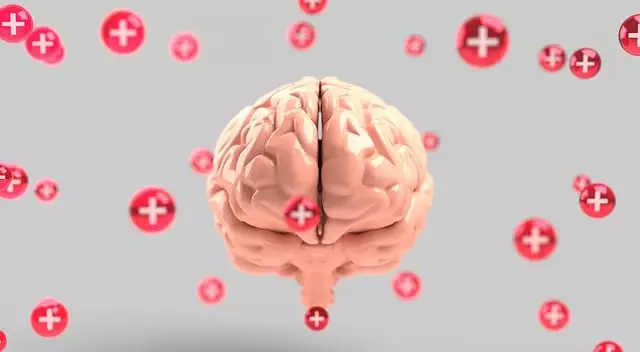The text discusses the significant impact of mental illness stigma, hindering individuals from seeking support. It highlights how fear of judgment prevents people from reaching out, such as hesitating to call the Kaiser Permanente mental health department phone number in Denver. To combat this, it emphasizes the importance of stigma reduction strategies through awareness, empathy, and community initiatives.
Kaiser Permanente Denver has made strides by offering educational programs, a dedicated helpline, support groups, and training for healthcare providers. These efforts empower patients and medical professionals while fostering an environment that prioritizes mental wellness. Peer support and emotional intelligence are also crucial weapons against stigma, with peer-to-peer programs helping individuals develop resilience and reduce isolation. Measuring success through metrics like participant satisfaction and changes in attitudes is vital to evaluate the effectiveness of these strategies, ensuring continuous improvement and better access to resources for those facing mental health challenges.
Mental illness stigma remains a significant barrier to accessing quality mental health care. This article explores comprehensive efforts to reduce this stigma, focusing on strategies employed by Kaiser Permanente’s (KP) mental health department in Denver. We delve into their innovative approach, educational initiatives for community awareness, peer-to-peer support programs, and the measurement of success through evaluated strategies. For more information, contact the KP Denver mental health department at [Phone Number].
- Understanding Stigma and Its Impact on Mental Health Treatment Access
- Kaiser Permanente Denver's Approach to Stigma Reduction
- Educational Initiatives for Community Awareness
- Supporting Peer-to-Peer Connections and Advocacy
- Measuring Success: Evaluating the Effectiveness of Stigma Reduction Strategies
Understanding Stigma and Its Impact on Mental Health Treatment Access

Stigma surrounding mental illness is a significant barrier to individuals seeking help and accessing treatment. It often manifests as negative attitudes, stereotypes, and discrimination, leading to social isolation and increased distress for those affected. This hidden challenge can make it difficult for people to disclose their struggles, even when they know the benefits of professional support. For instance, many individuals might hesitate to contact the Kaiser Permanente mental health department phone number in Denver due to fear of judgment or the concern that their personal issues will be misconstrued.
Understanding stigma is crucial in developing effective mental illness stigma reduction efforts. By raising awareness about mental health and promoting empathy, we can foster an environment where individuals feel safe to discuss their experiences openly. This includes supporting initiatives like inner strength development programs and implementing mental wellness coaching strategies that encourage self-care and resilience. Through education and direct support, communities can break down the walls of stigma, ensuring those in need have equal access to the resources they deserve.
Kaiser Permanente Denver's Approach to Stigma Reduction

Kaiser Permanente Denver has made significant strides in stigma reduction efforts, prioritizing mental health awareness and acceptance within their community. Their dedicated mental health department offers a multi-faceted approach, combining education, support groups, and accessible services to break down barriers. By providing resources like a helpline (call [Kaiser Permanente mental health department phone number Denver] for assistance) and engaging in Burnout Prevention Strategies for Healthcare Providers, they empower both patients and medical professionals.
The organization also recognizes the importance of reaching a wider audience through innovative initiatives such as Mental Wellness Podcast Series Production. Additionally, they conduct Healthcare Provider Cultural Competency Training to ensure staff are equipped with the knowledge and sensitivity needed to offer quality care, fostering an environment where mental wellness is prioritized and stigmatization is gradually reduced.
Educational Initiatives for Community Awareness

In the fight against mental illness stigma, educational initiatives play a pivotal role in fostering community awareness and understanding. Organizations like Kaiser Permanente’s mental health department in Denver are at the forefront of these efforts, offering valuable resources and programs to the public. Through workshops, seminars, and informational sessions, they educate communities about various aspects of mental health, including recognizing signs of distress, promoting emotional well-being, and providing guidance on effective conflict resolution techniques. These initiatives aim to dispel myths, reduce prejudice, and encourage early intervention, ultimately leading to improved support systems for those facing mental health challenges.
By engaging with local communities, these educational programs empower individuals to become advocates for their own and others’ emotional well-being. They equip people with crisis intervention guidance, enabling them to respond sensitively during emergencies and offer much-needed support. The Denver location of Kaiser Permanente’s mental health services has been instrumental in reaching out to diverse groups, ensuring that everyone has access to accurate information and the help they need. This proactive approach contributes significantly to a more supportive and inclusive society where mental illness is met with compassion rather than stigma.
Supporting Peer-to-Peer Connections and Advocacy

Peer support and advocacy are powerful tools in the fight against mental illness stigma. Encouraging individuals with personal experiences to share their stories can break down barriers and foster understanding. Many organizations, such as the Kaiser Permanente mental health department phone number in Denver, offer peer-to-peer programs where recovery ambassadors provide support and guidance to others facing similar challenges. These connections help reduce feelings of isolation and promote a sense of community, which is crucial for individuals navigating their mental health journeys.
Emotional Intelligence and Positive Thinking can play a significant role in these interactions. By advocating for themselves and others, individuals develop resilience and refine their emotional coping mechanisms. Peer support groups often incorporate Stress Reduction Methods to enhance overall well-being. This holistic approach ensures that advocacy is not just about raising awareness but also providing practical tools for managing mental health effectively.
Measuring Success: Evaluating the Effectiveness of Stigma Reduction Strategies

Measuring success is a crucial aspect of evaluating the effectiveness of stigma reduction strategies employed by organizations like Kaiser Permanente’s mental health department in Denver. By implementing programs such as Social Skills Training and Mental Wellness Coaching, the goal is to foster understanding, empathy, and support for individuals living with mental illness. To assess these efforts, detailed metrics should be established. This can include tracking participant satisfaction, changes in attitudes towards mental health through surveys and focus groups, and the number of people seeking help or referring themselves to professional services.
Additionally, long-term impact analysis is essential. Monitoring trends in healthcare utilization, employment rates, and social integration among participants can provide compelling evidence of successful stigma reduction. Incorporating feedback from both direct beneficiaries and community members allows for a comprehensive evaluation. This data-driven approach ensures that resources are allocated efficiently and that programs like Mental Health Policy Analysis and Advocacy are grounded in tangible outcomes, ultimately leading to more effective and impactful stigma reduction strategies.
Mental illness stigma reduction is a multifaceted approach that, when implemented effectively, can significantly improve access to mental health treatment. As discussed in this article, initiatives like those undertaken by Kaiser Permanente Denver’s mental health department play a pivotal role in fostering community awareness and peer support. By combining educational efforts with innovative strategies, such as measuring success through evaluation, these programs not only alleviate stigma but also empower individuals to seek help without fear of judgment. For those seeking support, the Kaiser Permanente mental health department phone number in Denver serves as a vital resource, offering guidance and access to care. Together, these efforts contribute to creating a more inclusive and understanding society where mental health is prioritized and treated with the same compassion as physical health.






